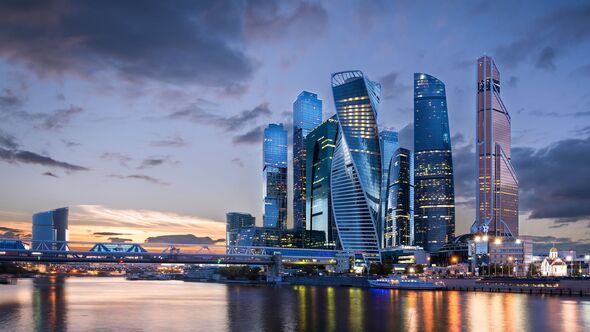World
Moscow Surpasses Major European Cities as Largest Mega-City

Moscow has officially become the largest mega-city in Europe, surpassing the combined populations of major cities like Barcelona, Rome, and Athens. As of 2025, the population of Moscow stands at over 12.7 million, according to the World Population Review. This growth has positioned the Russian capital as a significant hub in the continent, attracting residents from across Russia and former Soviet states seeking better opportunities.
The city, often mistakenly associated with Asia, lies firmly within Europe, well to the west of the Ural Mountains, which are traditionally regarded as the dividing line between the two continents. Over recent decades, Moscow has experienced rapid growth, bolstered by its status as the political, business, and transport centre of Russia.
Expansion and Urban Development
In 2012, Moscow underwent a substantial expansion, incorporating surrounding towns and effectively doubling its size. The wider Moscow region is now home to more than 20 million people, further emphasizing the city’s prominence. Known for its extensive metro system, which is among the busiest in the world, Moscow’s public transport network features stations adorned with chandeliers, marble, and intricate mosaics, resembling palatial structures rather than typical train stops.
Visitors to Moscow can explore a wealth of historical and cultural landmarks, including the iconic Red Square, the Kremlin, and St. Basil’s Cathedral. The modern skyline is punctuated by the Moscow City towers, showcasing the city’s blend of history and contemporary architecture. Additionally, the city boasts numerous parks, museums, theatres, and shopping areas, contributing to a vibrant urban life.
Impact of Recent Events
Despite its many attractions, everyday life in Moscow has been impacted by the ongoing conflict in Ukraine. In the past year, the city has witnessed a series of drone attacks, flight disruptions, and increased security measures. Some airports have faced temporary closures, and evacuation alerts have become more common, adding an element of uncertainty to daily activities.
In light of these developments, the UK Foreign Office has issued strong advisories against all travel to Moscow and other parts of Russia, following the country’s invasion of Ukraine. This advisory underscores the challenges faced by residents and visitors alike in a city that, while thriving, is navigating the complexities of geopolitical tensions.
As Moscow continues to grow and evolve, its status as Europe’s largest mega-city remains a focal point of interest, highlighting both the opportunities and challenges that come with such rapid urbanization.
-

 Entertainment3 months ago
Entertainment3 months agoAndrew Pierce Confirms Departure from ITV’s Good Morning Britain
-

 Health6 months ago
Health6 months agoFiona Phillips’ Husband Shares Heartfelt Update on Her Alzheimer’s Journey
-

 Health6 months ago
Health6 months agoNeurologist Warns Excessive Use of Supplements Can Harm Brain
-

 Entertainment3 months ago
Entertainment3 months agoGogglebox Star Helena Worthington Announces Break After Loss
-

 Science5 months ago
Science5 months agoBrian Cox Addresses Claims of Alien Probe in 3I/ATLAS Discovery
-

 Science4 months ago
Science4 months agoNASA Investigates Unusual Comet 3I/ATLAS; New Findings Emerge
-

 Entertainment4 months ago
Entertainment4 months agoTess Daly Honoured with MBE, Announces Departure from Strictly
-

 World2 months ago
World2 months agoEastEnders Welcomes Back Mark Fowler Jr. with New Actor
-

 World4 months ago
World4 months agoBailey and Rebecca Announce Heartbreaking Split After MAFS Reunion
-

 Entertainment8 months ago
Entertainment8 months agoKerry Katona Discusses Future Baby Plans and Brian McFadden’s Wedding
-

 Health1 month ago
Health1 month agoSue Radford Reveals Weight Loss Journey, Losing Two Stone
-

 Science4 months ago
Science4 months agoScientists Examine 3I/ATLAS: Alien Artifact or Cosmic Oddity?








